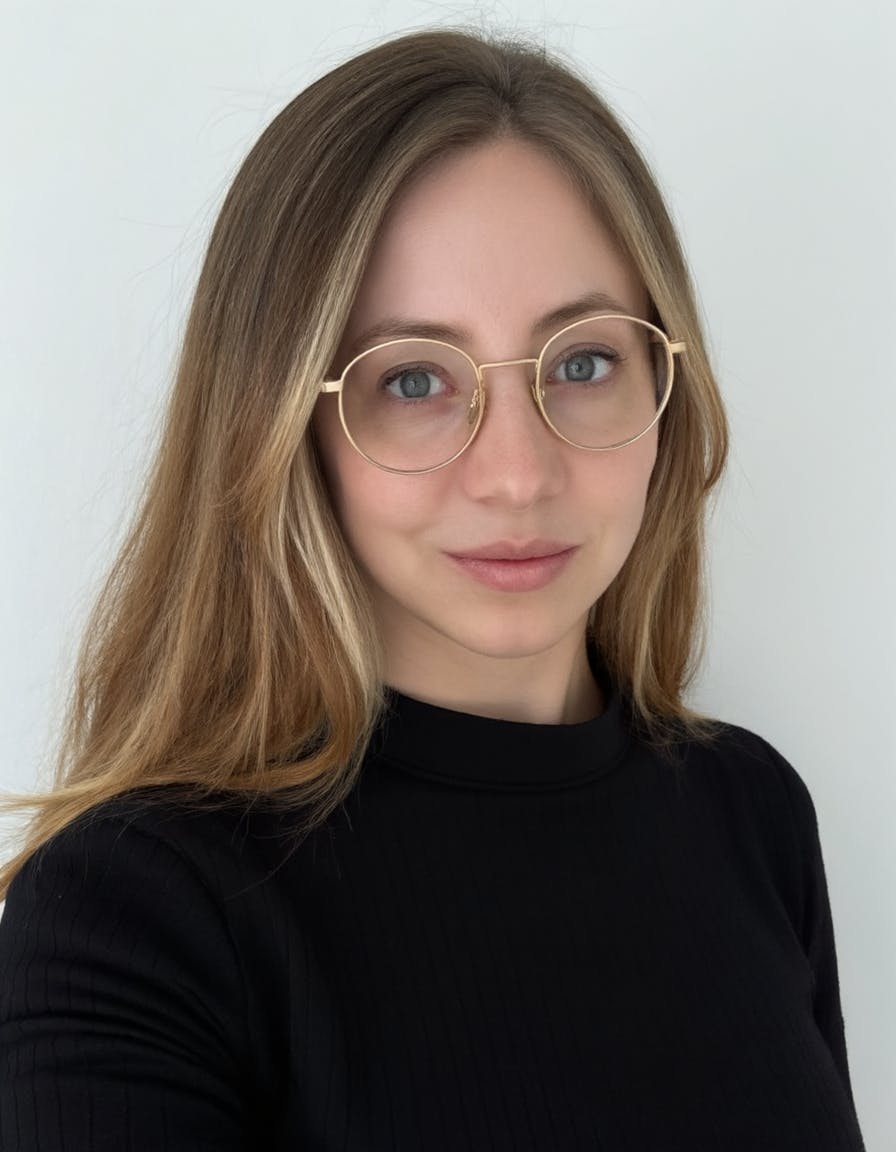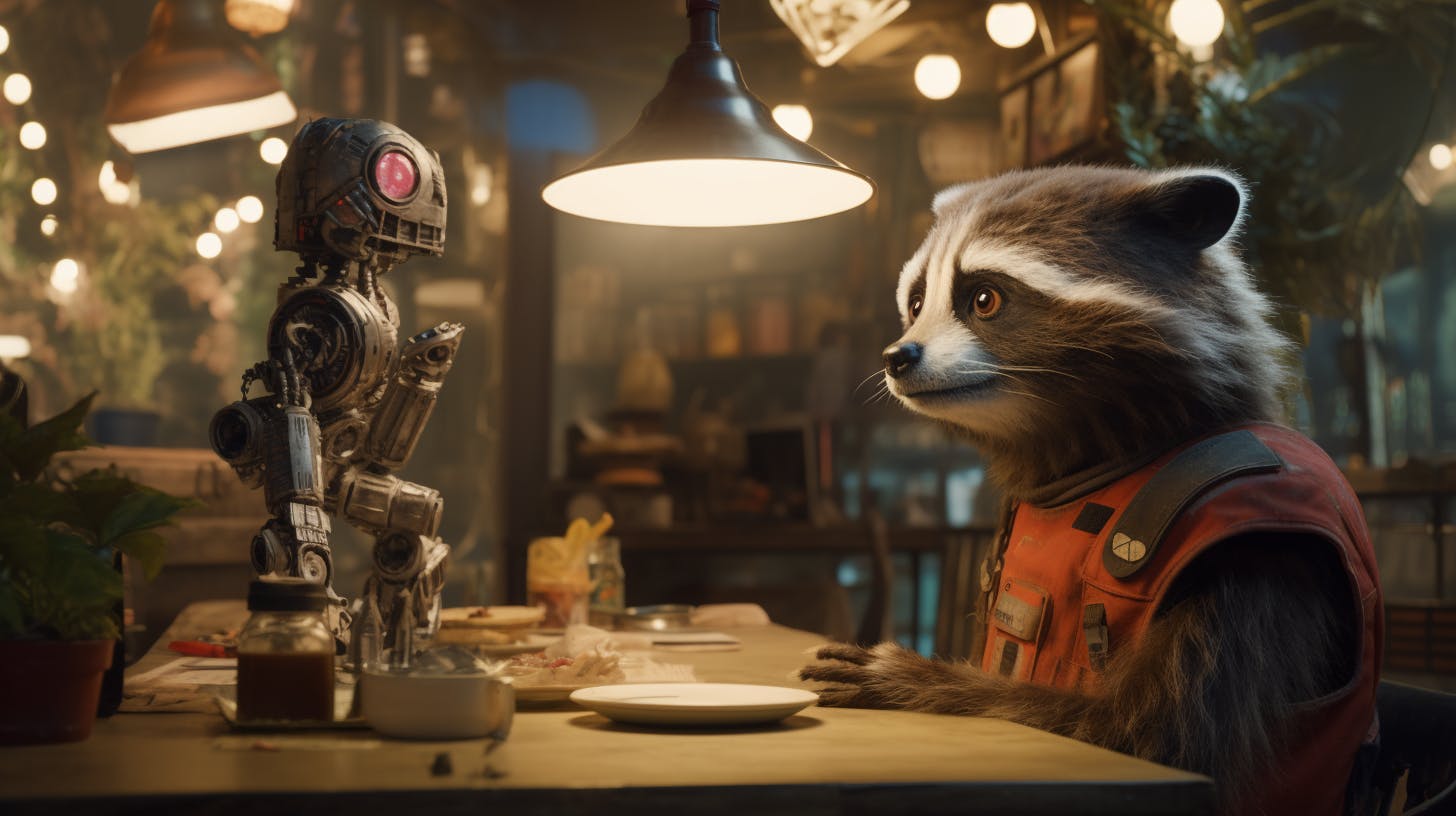Table of contents
In the last weeks, I’ve found myself 🙄 rolling my eyes 🙄 at the many job applications that are obviously generated by ChatGPT.
Don’t get me wrong, my colleagues and I use ChatGPT a lot for work, whether it’s to spark creativity or simply to work faster. Jonathan, our Solutions Engineer, used it to build something in a month that data teams would take half a year to deliver in different organizations. ChatGPT saves time on research and gives a good foundation to build upon.
It’s become popular to use the tool to apply for jobs and I think that’s great! It makes researching the company a lot faster and you can get good inspiration for cover letters or potential application questions.
However… a lot of obviously AI-generated job applications are just really bad.
Obvious giveaways that you used ChatGPT and what to do instead
Before I list some of these clear signs, I want to stress that I don’t think it’s a bad thing to use AI to apply for jobs! There are many great sides to it and I want to hire people who are not afraid to use new and innovative technology to save time, increase productivity, and come up with new ideas. Enthusiasm for technology is a welcome trait at Checkly. We love seeing your adaptability and commitment to continuous learning and growth in the tech realm.
There are some things that I personally don’t like, such as…
Misinformation
Your cover letter is great and touches exactly on the skills and experiences that we are looking for… but you don’t actually have those skills and experiences, or at least they’re not reflected in your CV.
At the time of writing, we’re searching for a Product Marketing Manager (PMM) to join our team. ChatGPT understands very well from our job ad that we are looking for someone who has experience with marketing to developers, SREs, Platform Engineers etc. So the cover letters that are AI-generated mention that experience in the first paragraph. Super exciting to read! But then I check the CV and this experience is nowhere to be found. Imagine the disappointment.
Instead, add your skills and experience to the prompt so that the response is personalized to you. Alternatively, ask ChatGPT to create a more generic response for you and then add your specific skills or examples of impact afterward.
Generic and long cover letters
AI-generated cover letters tend to be generic and follow a certain format. Often, they’re also quite long.
Instead, use ChatGPT as a source of inspiration when you’re stuck or don’t know where to start. It’s quite good at understanding what the company is looking for from the job description. From there, you can refine things with follow-up prompts or go in and edit the text manually. For example, you can ask ChatGPT to make your cover letter more concise.
Personally, I am a fan of concise, bold, and specific cover letters. Cover letters are optional at most companies, so if you’re going to put the effort into creating one, you should rather make a good one. If you need some inspiration, you can check out the cover letter and CV I used when I applied to Checkly in this blog post.
Generic or non-answers
As part of the PMM application, we ask the applicants to “briefly explain your last product launch targeted to developer audiences.” Answers that are obviously AI-generated are a general overview of how to launch a product to developers - in the typical ChatGPT format. They don’t have any relevant specifics on the product you’ve worked on, the results of your launch or your specific approach.
Another application question is “What company does a great job with product marketing to developer audiences?” I estimate that about 80% of applicants answer Stripe or Twilio, with a very similar explanation. At first, I was impressed with how well these companies have made a name for their developer marketing, but then I asked ChatGPT the same question and it was obvious where these answers were coming from.
Instead, give AI enough specific input to be able to answer a question that is specific to your experience and use follow-up prompts to add information or refine the answer. If you’re asked for an opinion and you need inspiration from ChatGPT, I recommend not going for the first result. Maybe ask for a top 10 and then see which one you align with the most.
Example of an AI-generated cover letter using different prompts
Bad prompt: “Write a cover letter for the Senior Product Marketing Manager role at Checkly”
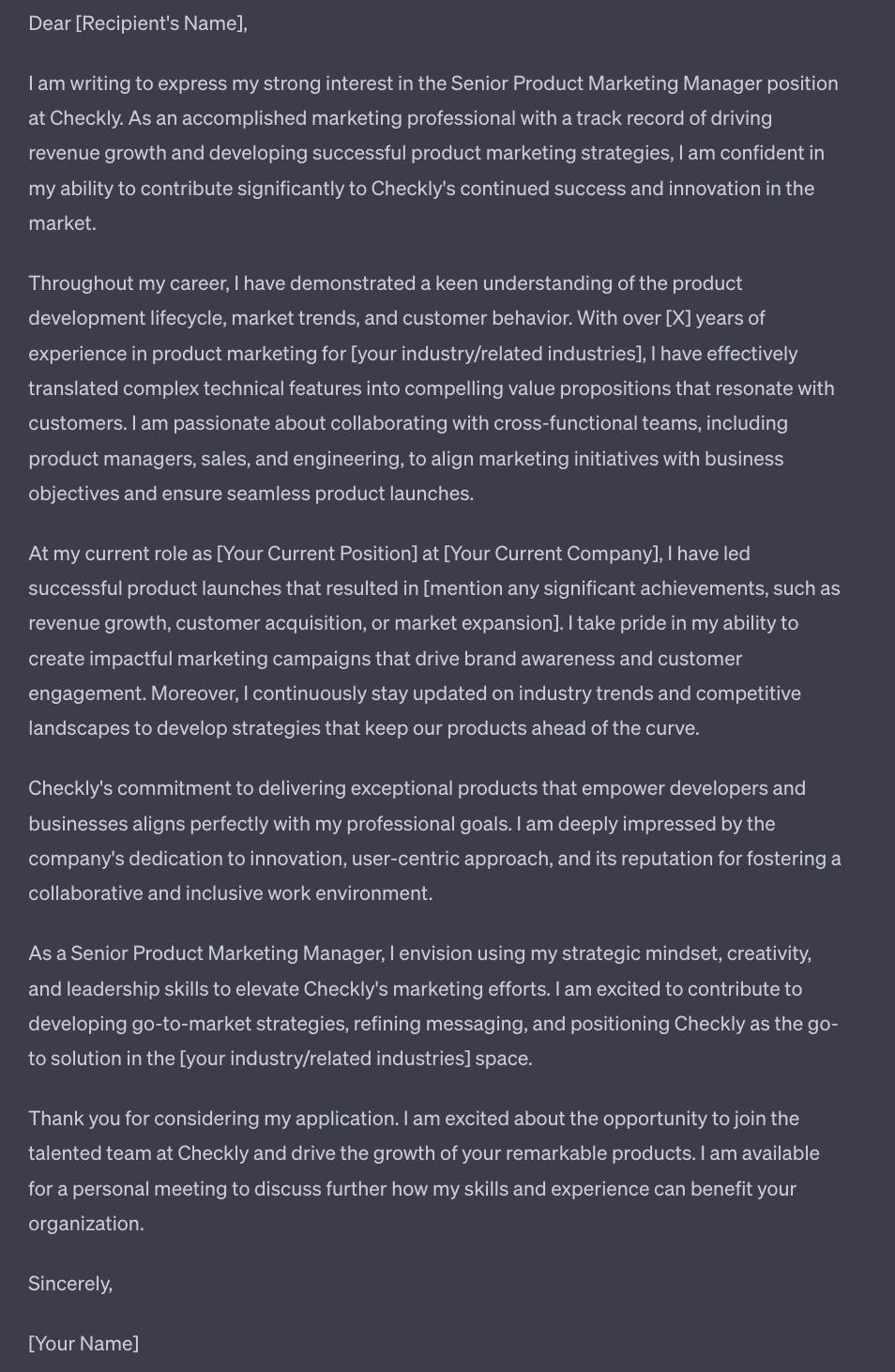
Better prompt: “Write a cover letter for the Senior Product Marketing Manager role at Checkly based on the job ad below:
[copy/paste the job ad]”
Follow-up prompt: “Rewrite the cover letter to make it more concise and conversational with my experience as a Product Marketing Manager below.
2021 - current: Senior Product Marketing Manager at Company X (B2B SaaS, software testing)
2018 - 2021: Product Marketing Manager at Company Y (B2B SaaS, virtual whiteboard)
2016 - 2018: Platform Engineer at Company Y (B2B SaaS, virtual whiteboard)”
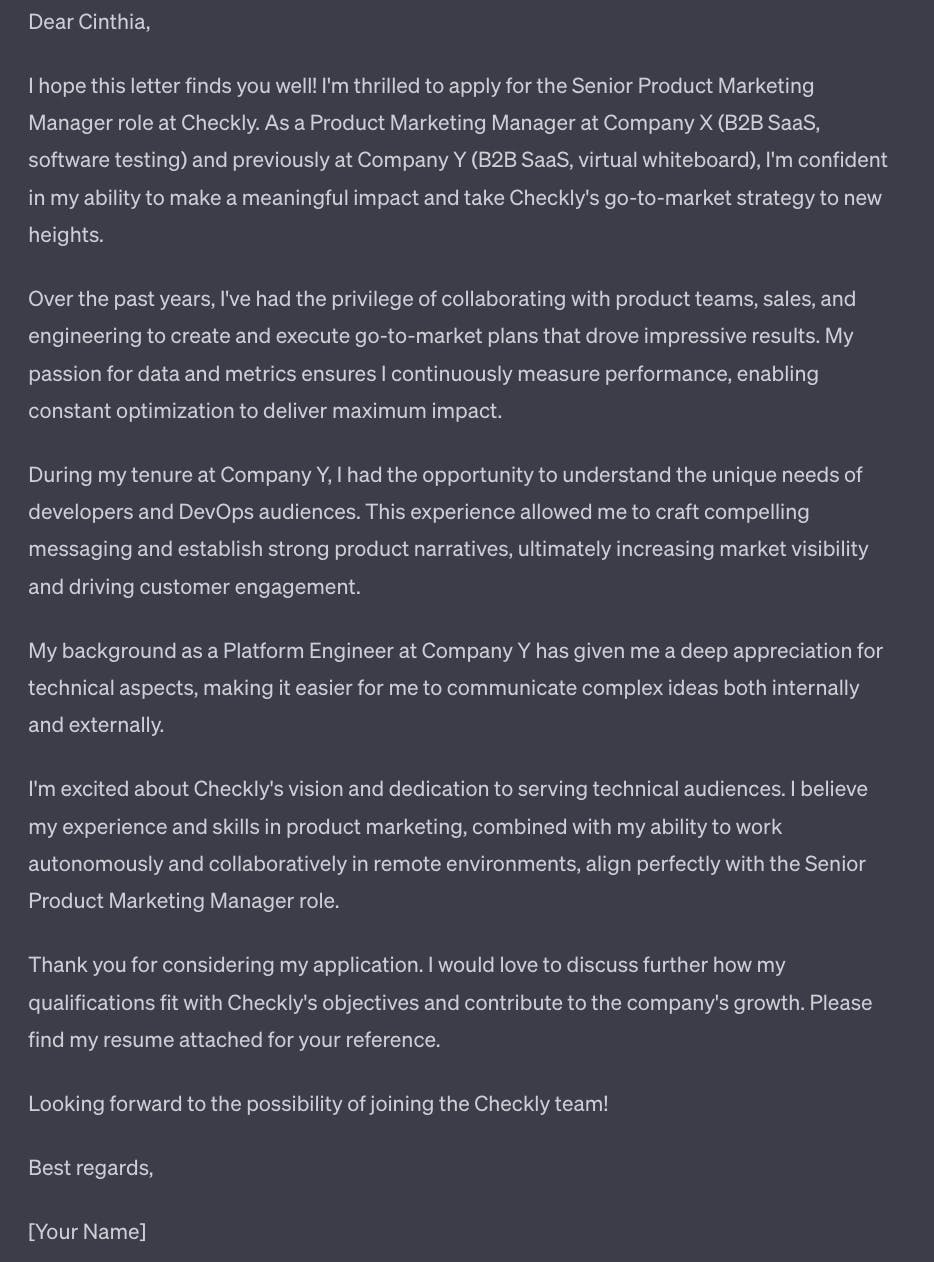
We can make this even better with this follow-up prompt: “Please rewrite the cover letter to make it more concise and include the impact I've had at my previous roles:
Company X: Contributed to a 23% increase in sales over two years by revising pre-existing marketing strategies and plans
Company Y: First and only Product Marketing Manager in the team. Contributed 35% MRR growth YoY.”

Result: An impressive cover letter that will be put in front of the hiring manager. You have the experience we’re looking for and show the impact you had in your previous roles.
Pro tip: Showing impact with data is also a great way to show that you’re conscious about data-driven decision making.
We can make it more original and not start like every other cover letter with another follow-up prompt: “Rewrite the cover letter to start with a more original sentence and not the typical start of a cover letter.”
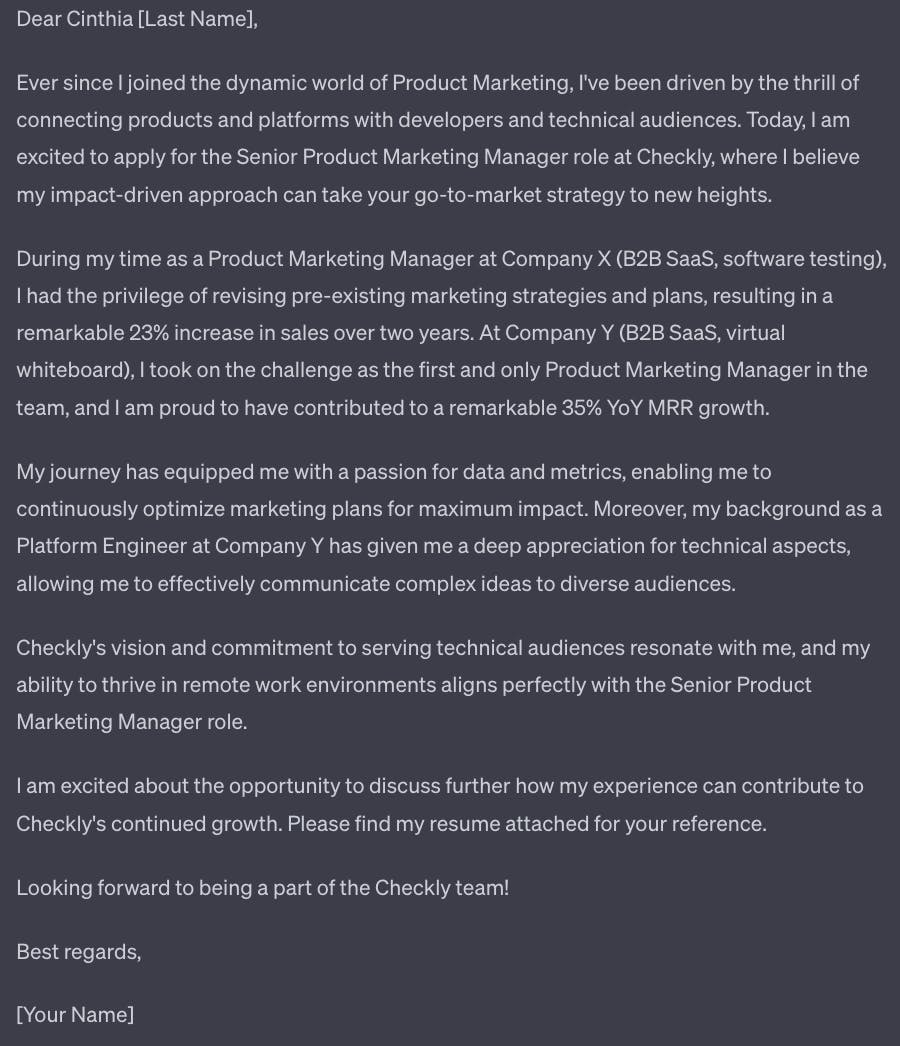
Conclusion
While AI-powered language models like ChatGPT can be beneficial for applicants in the job search process, relying solely on them can lead to unauthentic and unimpressive applications.
It's crucial for applicants to use these tools as aids rather than substitutes for their unique experiences, skills, and voice. By combining the strengths of AI-generated content with personalization and genuine enthusiasm, applicants can craft compelling applications that stand out to recruiters for all the right reasons. Happy job hunting!
👆Yes, this conclusion was 100% written by ChatGPT!
